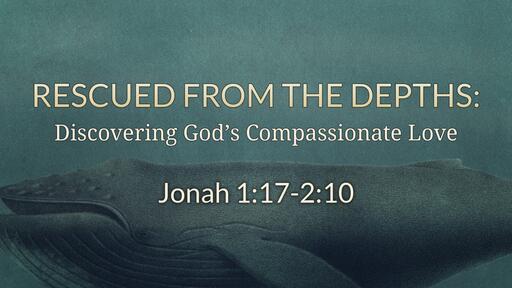Rescued from the Depths - July 16th, 2023

This sermon explores the story of Jonah 1:17-2:10, delving into the depths of despair and the transformative power of repentance and God's mercy. Through engaging life material, such as relatable stories of individuals grappling with rebellion and despair, the sermon connects with the congregation's experiences. The biblical exposition of Jonah's prayer and God's response reveals God's unfathomable mercy and His desire for redemption. The sermon's final resolution discloses the proposition that in the depths of despair, genuine repentance and embracing God's mercy lead to redemption and hope. The sermon achieves its devotional objective by fostering a connection with God's mercy and calling for a response of knowing, feeling, and embracing His transformative grace.
